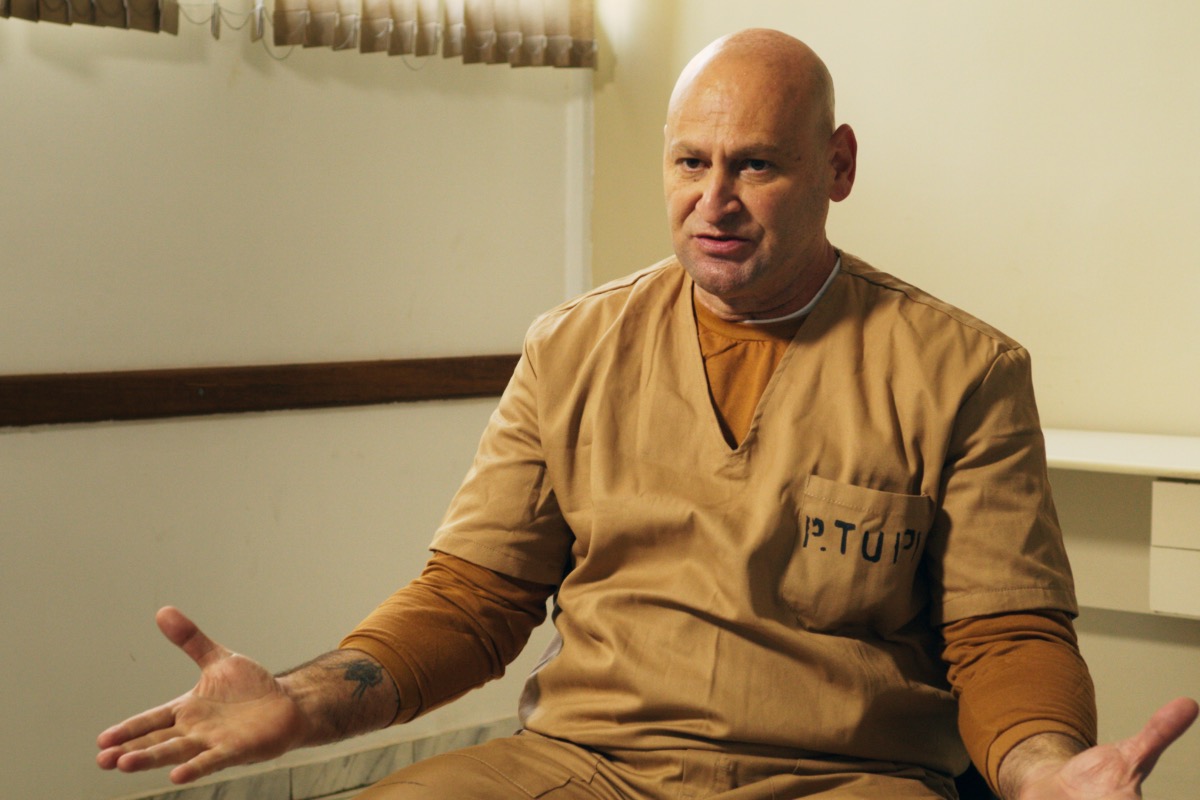

Orlando Mota Júnior, known as “Macarrão” and a former member of the PCC, gives a interview in the HBO Max’s documentary series ‘PCC: Poder Secreto.’
SÃO PAULO, Brazil — HBO Max’s documentary series PCC: Poder Secreto (PCC: Secret Power), which premiered on May 26, offers an inside look into the largest criminal organization in South America.
The Primeiro Comando da Capital (First Command of the Capital, or PCC in Portuguese) was born inside São Paulo prison system during the 1990s and exploded after the Carandiru Massacre, when the São Paulo State Military Police stormed the Carandiru Prison and killed 111 inmates rebelling for better imprisonment conditions.
The “Capital” in their name refers to São Paulo, arguably the richest city in South America. the PCC is accused of several crimes including prison breaks, prison riots, murders, drug trafficking, and bank robberies, among other criminal activities.
Although it tells the side of those in the underworld, the series also gives voice to the relatives whose lives have been deeply cut by the organization’s activities.
In an interview with Latino Rebels, director and veteran Brazilian filmmaker Joel Zito Araújo talks about his creative process, the relevance of telling this story, the appeal of the PCC in impoverished areas, the relationship it has with hip-hop culture, and how it is expanding its power across Latin America.
How did you come to the idea of telling the PCC story as a documentary?
It wasn’t my idea; it came from producer Gustavo Mello. After being taken aback by the book Irmãos: Uma História do PCC (Brothers: A PCC Story) by Gabriel Feltran, he saw the potential and asked me to direct it.
Since I shot fictional features and documentaries, I have for a long time during my career observed that some stories are even more powerful when told inside a documentary narrative. This is one example.
To have access to the testimonials of these people that embarked in the gang world and founded the PCC, and the stories of those who were affected by it, seems to me to be more impacting than dramatizing it.
What is new in this work that those living in Brazil don’t know already?
All previous works on the PCC are influenced by law enforcement and follows their point of view. In our new series, we try to bring the narrative from PCC (members) and of those living in the outskirts (as they live in the middle of this battle between the PCC and the police). In the end, we aimed to bring a balance between all the narratives by not taking or defending any side. Maybe this can explain the success of the series, as it was for a whole week in the number one spot in HBO Max Brazil ratings and second in Latin America, and it still is in the top 10.
What was the process like having many sides of this story told, ranging from the criminal world to law enforcement agencies?
The PCC is recognized today as the major criminal organization in South America, and it is spreading through (Brazil’s) neighboring countries. It is already vying for the leadership of the Paraguayan underworld. It feels like a group that came to stay around considering their code of conduct, or “o proceder” (the way of proceeding), and by being fed by an erroneous mass imprisonment policy that is running rampant in Latin America.
Many folks might see your proposal as an apology for the criminal lifestyle. What can you say to them?
It would be a mistake to see it in such a light, because the PCC doesn’t ask for forgiveness. It could be said of those who have left the criminal life, as they want to be forgiven and they take most of the opportunities to speak in the documentary toward that end.
Still, the PCC is an admittedly criminal organization that defends the underworld. It is a huge criminal capitalist organization that only considers expanding its profits and turf.
What is the influence of hip-hop culture on PCC members in general?
Hip-hop culture and the PCC were born in the same place: urban hoods (impoverished areas). (In the film) one brother goes to the world of crime and another goes to the musical world, thereby escaping from criminality. Still, they’ve shared their childhood, and they know the hardships of the hood.
On many occasions, they meet during the weekends on the soccer pitches or share a beer while chatting. For this reason, hip-hop, in many instances, is what better describes the ideology of the PCC. But that doesn’t mean that the artist is a member of the PCC.
Is the influence of PCC in Brazil similar to cartels in Mexico that have established their ties in politics?
The PCC has some ties with cops, but it still is very decentralized, not much hierarchical. It is more a brotherhood than an organization inspired by the (Italian) mafia. Hence, the PCC takes advantage of law enforcement and political corruption in the countries where it operates. But the inexistence of a great “capo” and the lack of interest in having one makes this faction work in a different way than the Mexican ones.
***
Gabriel Leão is a Brazilian journalist based in São Paulo whose work has been featured by Wired, Ozy Media, Al Jazeera, and Vice. He holds a master’s degree in communications and a post-graduate degree in foreign relations.



[…] Source link #HBOs #PCC #Poder #Secreto #Shows #Rise #South #Americas #Largest #Criminal #Organization […]